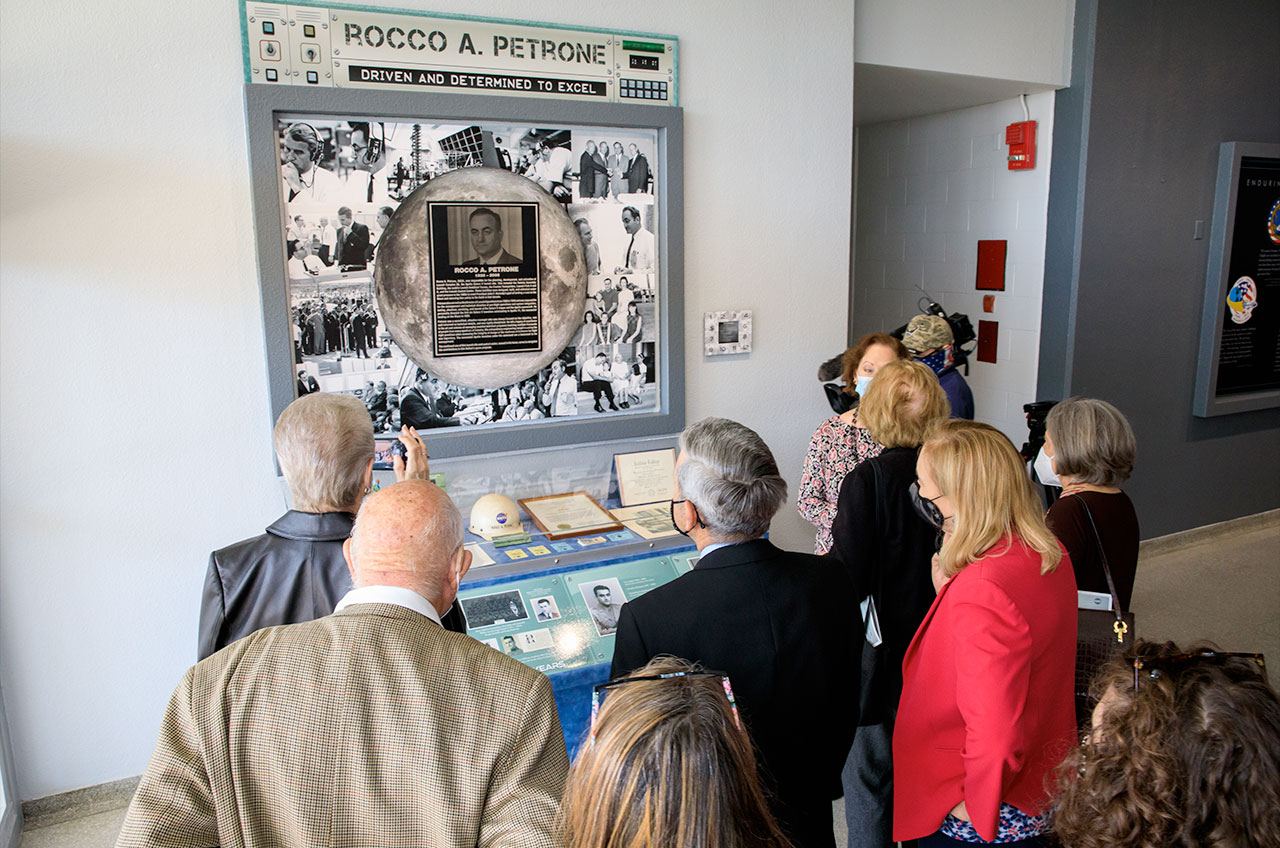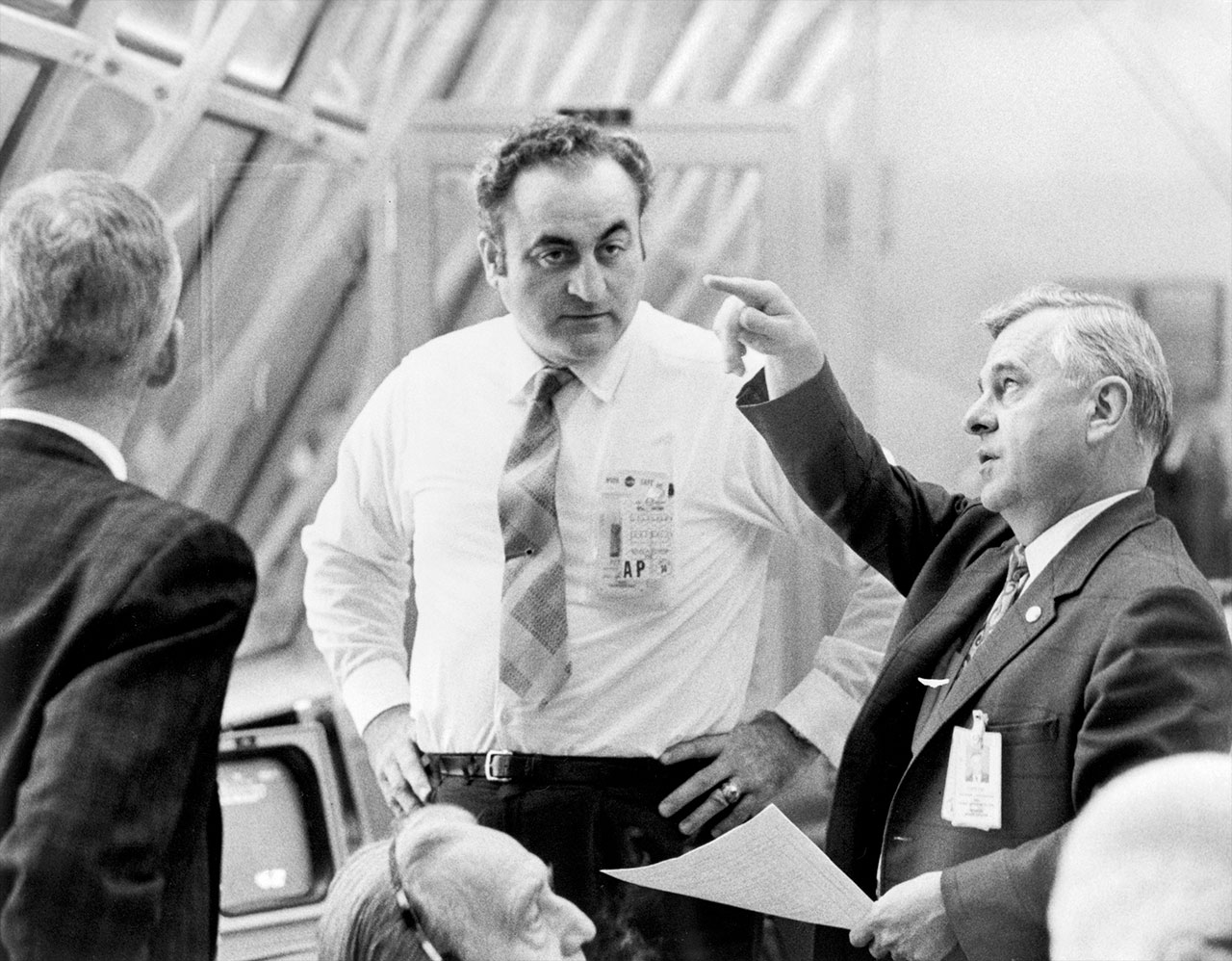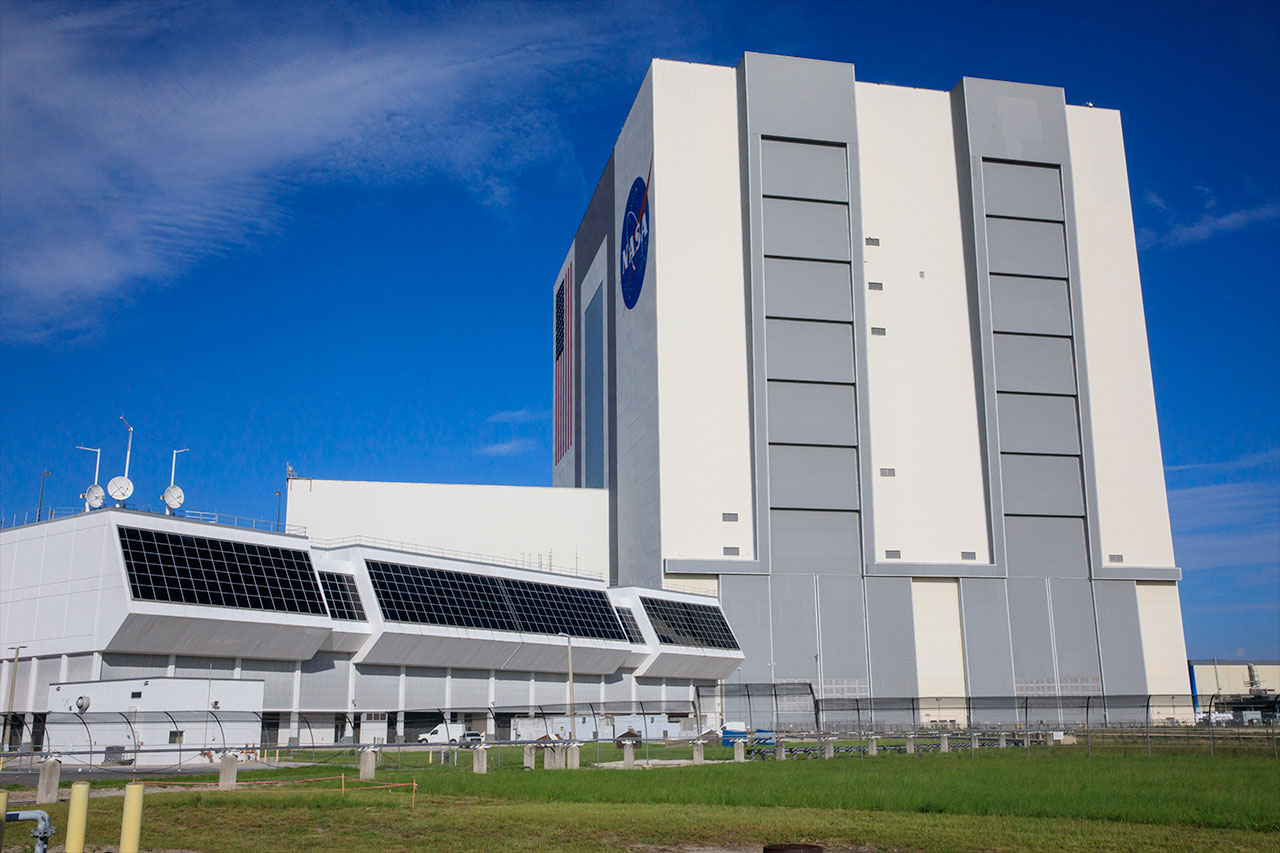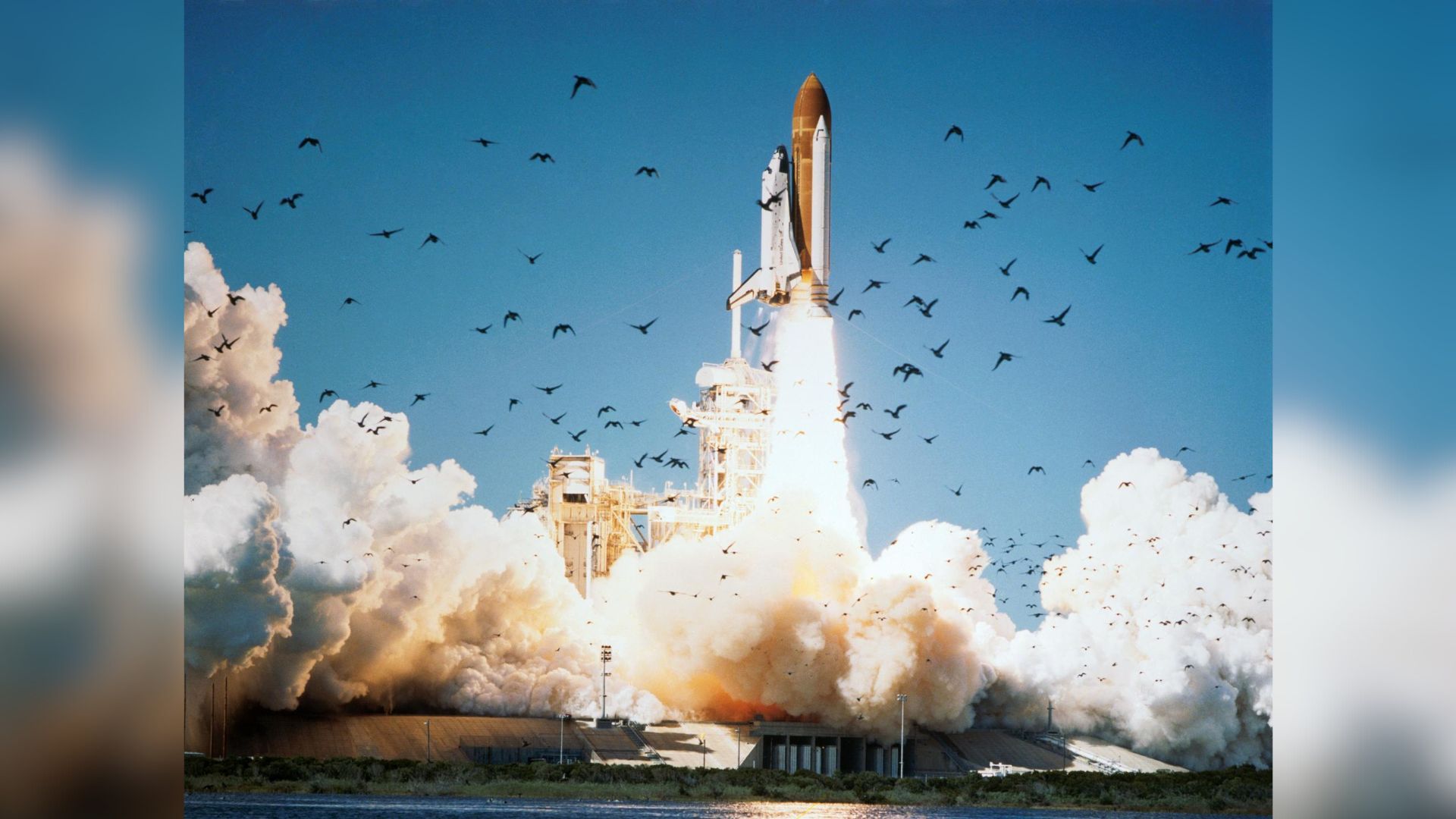NASA control center named for Apollo launch director Rocco Petrone
"We recognize the history of this building, at this great facility, by renaming it after one of NASA's pioneers."

The NASA control center from where engineers oversaw the launch of the first astronauts to walk on the moon now bears the name of one of its pioneering directors.
Agency officials gathered at the Kennedy Space Center in Florida on Tuesday (Feb. 22) to honor the late Rocco Petrone, who as director of launch operations led the countdowns to the first five crewed Apollo liftoffs, culminating in the Apollo 11 moon landing in 1969. The naming of the Rocco A. Petrone Launch Control Center came as NASA prepares to resume launches to the moon under its new Artemis program.
"He dedicated himself to the challenge of planning, developing and activating the critical infrastructure that enabled the first humans to explore deep space and eventually, to land on the moon," Janet Petro, director of the Kennedy Space Center, said during Tuesday's ceremony. "Today, the same facilities that housed, transported and launched the first rockets to send humans to deep space now house and stand ready to transport and launch the vehicle that will return them and stand as a testament to the vital and essential role Mr. Petrone's contributions have made to the history of our agency."
Related: NASA's 17 Apollo Moon Missions in Pictures
The Launch Control Center (LCC), which was established in 1967, has been the "nerve center" from where engineers and the launch director have monitored their consoles and given the "go" for Apollo, Skylab, space shuttle, Ares and SpaceX Falcon 9 liftoffs. NASA's upcoming launch of Artemis I will use the same building and firing room that Petrone once led.
"Today, we recognize the history of this building, at this great facility, by renaming it after one of NASA's pioneers," said Charlie Blackwell-Thompson, who as Artemis I launch director is continuing Petrone's legacy. "[He] inspired generations of future engineers to challenge the status quo and to make what once seemed impossible possible."
Petrone, who died in 2006 at the age of 80, transferred to Kennedy as an active-duty Army lieutenant colonel in 1960 to serve as Saturn project officer. It was in that role, that he saw to the creation of the LCC, the adjoining Vehicle Assembly Building (VAB), the launch towers, the crawler-transporters and the Apollo Mobile Service Structure. He is credited with establishing Launch Complex 39, from where every Apollo and shuttle mission was launched, and where today SpaceX commercial flights depart for Earth orbit.
Breaking space news, the latest updates on rocket launches, skywatching events and more!
In 1966, Petrone became Kennedy Space Center's director of launch operations, giving him responsibility for the management and technical direction of pre-flight operations and the integration, test, checkout and launch of all of NASA's space vehicles, both crewed and uncrewed.
"Whenever I was around him, there was no doubt who was the boss," said John Tribe, who worked under Petrone as an engineer during the Apollo and shuttle programs. "He was rigidly disciplined [and] unbelievably well informed on technical details."
In 1969, Petrone was named director of Apollo, with overall responsibility for the direction and management of the program. He later served as director of the Marshall Space Flight Center in Alabama, and as NASA's associate administrator until his retirement from agency in 1975.
"Without his strong leadership, we think the work here at Kennedy for Apollo would have been very different," said Richard Quinn, president of the Florida Chapter of the NASA Alumni League, which endorsed the naming of the Launch Control Center in Petrone's honor. "There were many 'heroes' within NASA and our contractors during those times, but few rose to the prominence and success that Rocco did. His personal drive and commitment to excellence are legendary, and naming the Launch Control Center for him we think is a fitting tribute."

In addition to installing a large sign displaying the LCC's new name, an exhibit was added to the lobby of the building showcasing some of the items Petrone used and received during his career at NASA.
"We are so proud to have these items on display for so many to see," said Kathy Posey, Petrone's daughter, who represented her mother, Ruth, and her siblings, Terry, Nancy and Mike, at the ceremony. "I even learned some things that I didn't know about my father while looking through all the memorabilia."
Follow collectSPACE.com on Facebook and on Twitter at @collectSPACE. Copyright 2022 collectSPACE.com. All rights reserved.

Robert Pearlman is a space historian, journalist and the founder and editor of collectSPACE.com, a daily news publication and community devoted to space history with a particular focus on how and where space exploration intersects with pop culture. Pearlman is also a contributing writer for Space.com and co-author of "Space Stations: The Art, Science, and Reality of Working in Space” published by Smithsonian Books in 2018.
In 2009, he was inducted into the U.S. Space Camp Hall of Fame in Huntsville, Alabama. In 2021, he was honored by the American Astronautical Society with the Ordway Award for Sustained Excellence in Spaceflight History. In 2023, the National Space Club Florida Committee recognized Pearlman with the Kolcum News and Communications Award for excellence in telling the space story along the Space Coast and throughout the world.



